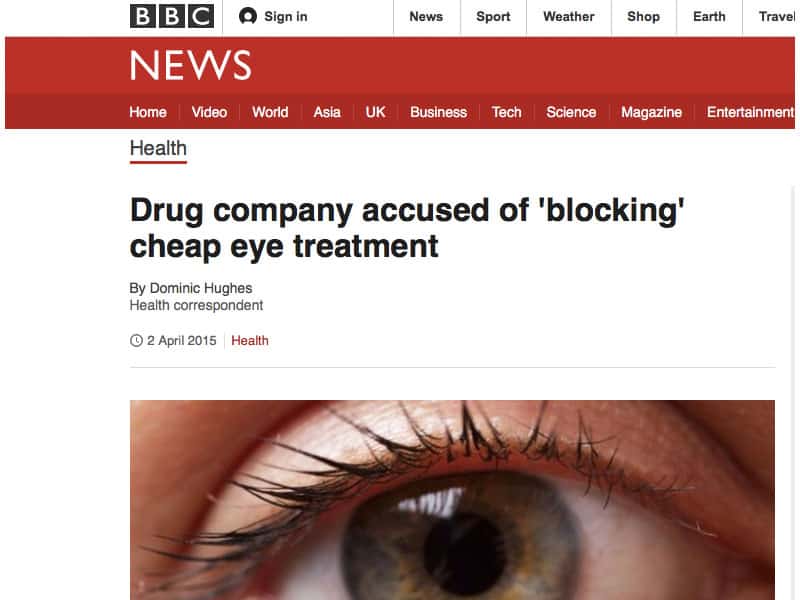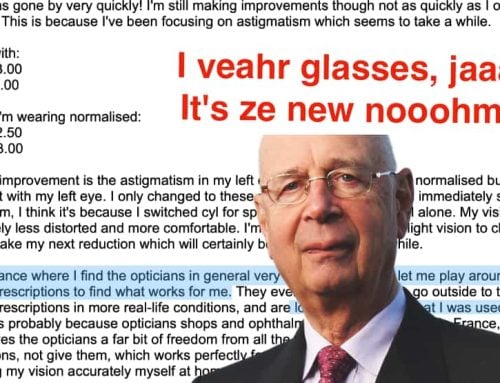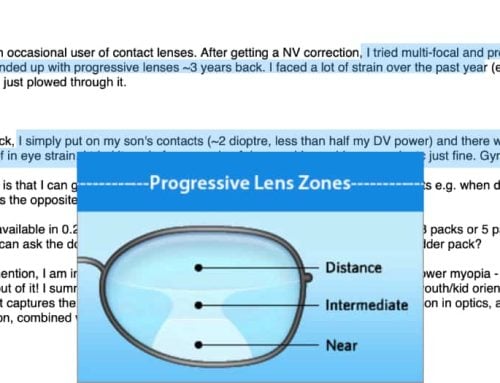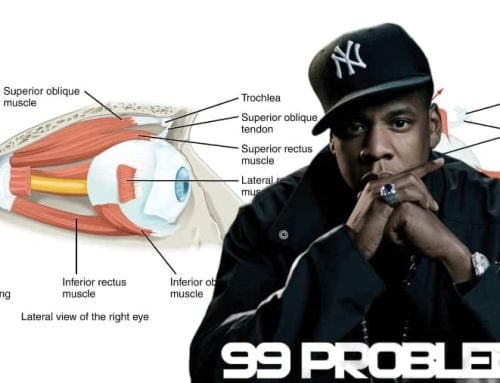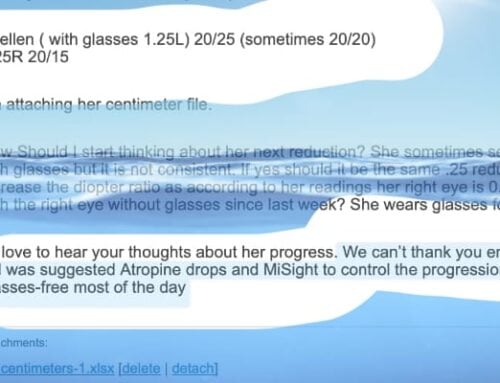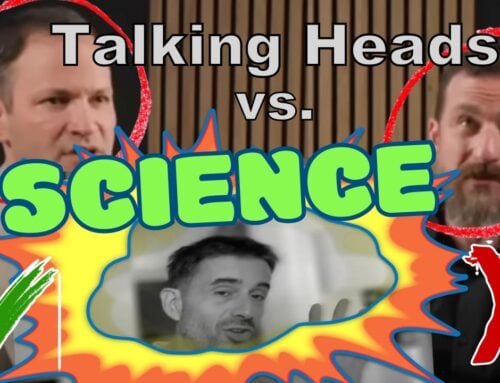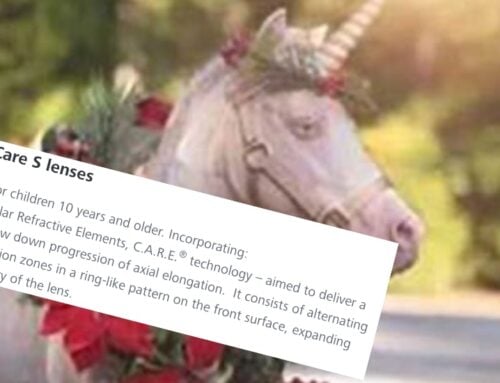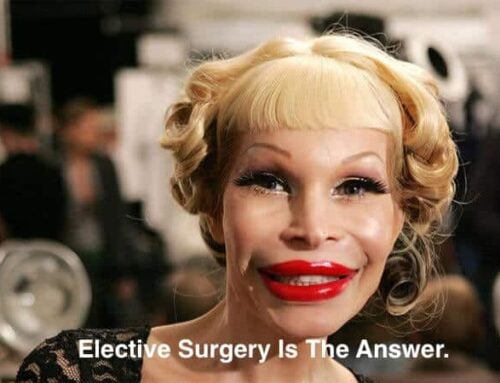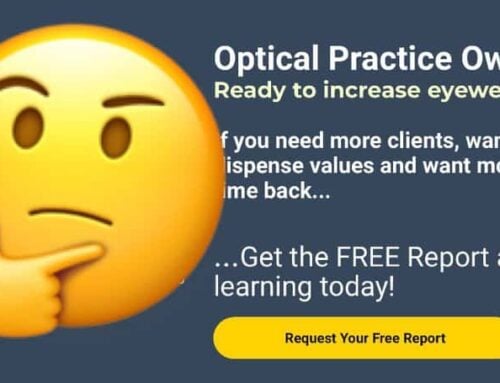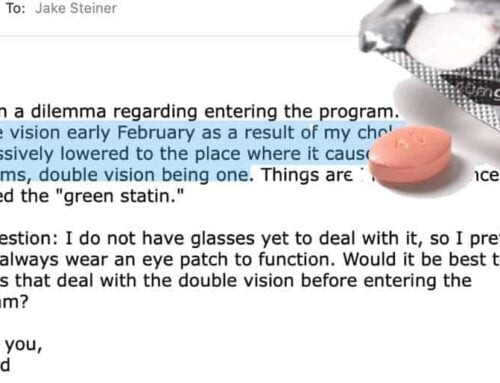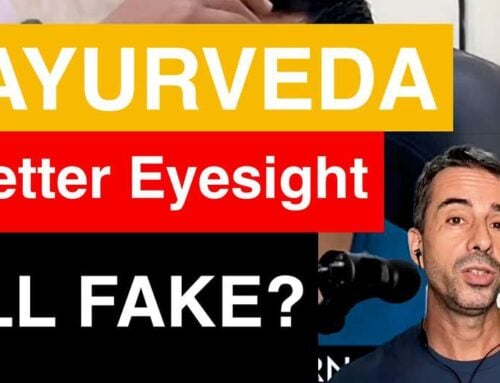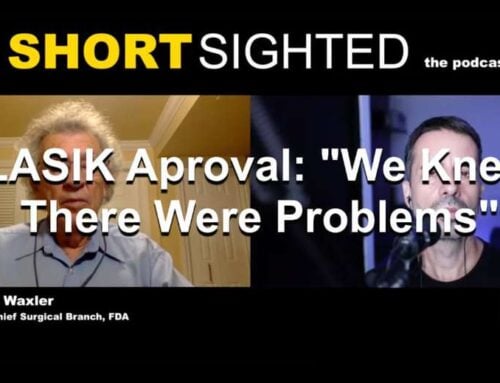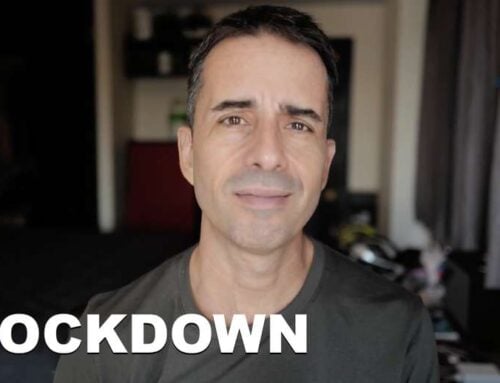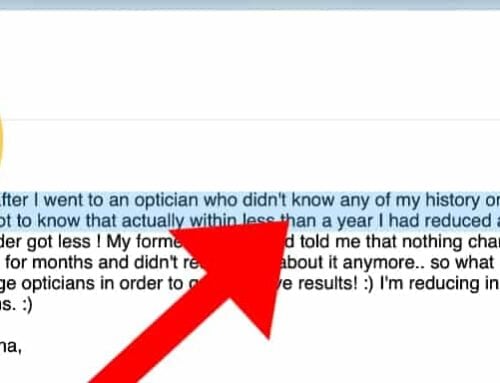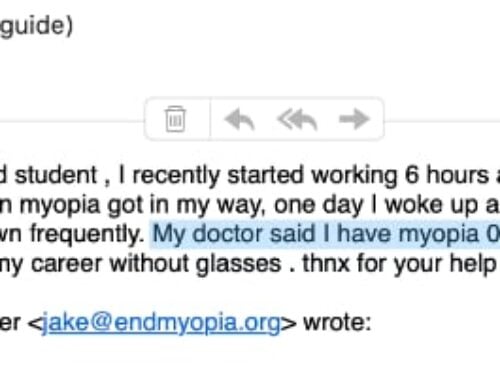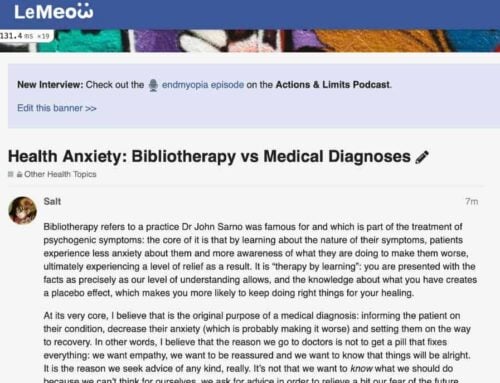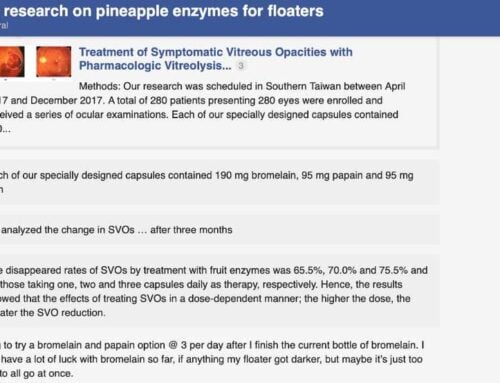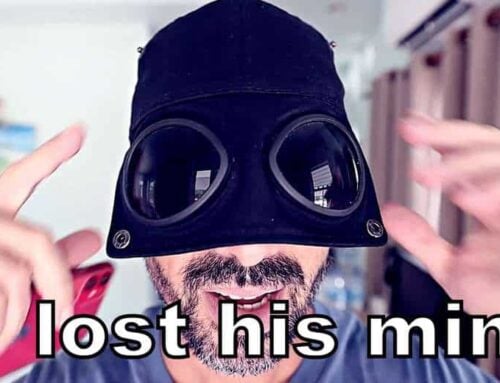Health for profit. Doctors and symptom treatment. Big pharma owning the narrative.
I bring up stories substantiating this, often. Why? Because your darling frou-frou hippie eye guru knows about the power of doctrine. Both of my parents are medical doctors. It’s like a pill-firing brigade of pharma sales yes-man, back in the childhood home of Jakey.
You can’t talk to them about it, either. My dad in particular, smart guy. Mensa. Private practice & ran major clinics. Published. Patients from all over the world. A serious man with serious credentials.
And he loves his statins.
What happens when you point him to large scale studies calling in question their effectiveness? What if you quote Harvard Medical School doctors saying that statins are a bad idea?
Nothing happens. The man picked up the statin banner and that’s the end of that.
So yes, I know this: doctrine is a powerful thing. The narrative, once adopted, is something that the individual will defend past all logic and reason. This then why I like to bring up stories that continue to drill the countermeasure. Health has been sold for profit. Doctors treat symptoms. Big pharma controls the message.
Today’s lovely exhibit A, courtesy of Novartis, big pharma player. It’s alleged that Novartis has been blocking access to reasonably priced eye treatments, to protect their own product and profits. Reported by the BBC and the British Medical Journal (props to those guys):
“A drugs firm has been accused of trying to block access to what some doctors believe is a cheap, safe and effective drug to treat a common eye condition.
The British Medical Journal claims it has revealed a campaign to derail research into the cancer drug Avastin.
The claim has been denied by Novartis, the firm which markets the officially licensed drug, Lucentis, in the UK.
Many doctors use Avastin as a cheaper but unlicensed alternative to treat wet age-related macular degeneration (AMD).
AMD affects at least 26,000 people each year in the UK and if left untreated can cause blindness.
The latest research puts the number at around 40,000, of which around two-thirds are likely to need treatment.
There is a licensed drug – Lucentis – which costs the NHS around £740 per dose.
Trials have shown that another drug used to treat cancer – Avastin – is also an effective treatment, and is much cheaper, at between £50 and £65 per dose.
Some doctors have been prescribing it, but it isn’t licensed for this purpose.
There is the added confusion of uncertainty over whether doctors could be personally liable if they prescribe an unlicensed drug.
Both drugs are owned by the same company, Roche, but Lucentis is marketed by Novartis in the UK.
The BMJ now claims it has evidence that clinicians with ties to Novartis urged some primary care trusts to pull out of one trial, and alleges the company tried to derail a second UK trial.
Alternative drugs
BMJ editor-in-chief Dr Fiona Godlee said pharmaceutical companies should not be able to block access to alternative drugs.
“Doctors’ leaders also need to sort out the web of misinformation about drug prescribing that has been generated behind closed doors. and is costing the NHS hundreds of millions of pounds a year by scaring doctors from using cheap and effective medicines.”
A spokesman for Novartis denied the allegations.
“We take any allegations seriously and are closely reviewing the content of the article.
“Novartis is committed to improving health outcomes for patients with serious eye disease as demonstrated by our substantial engagement in ophthalmology, including significant research and development efforts in the UK.
“Novartis continuously conducts clinical trials in the UK and other countries.
“Discussions with UK study sites and healthcare professionals occur during all stages of these clinical trials.
“During the feasibility stage these discussions often focus on the capacity and capability to conduct studies in accordance with the highest clinical and ethical standards.”
In November 2014, the Royal College of Ophthalmologists called for Avastin to be made available for treating the condition on the NHS, arguing that switching to the drug could save the NHS £100m.
And in February clinical leaders from 120 clinical commissioning groups called on ministers and NHS England to clarify regulations that make it hard for physicians to prescribe Avastin for wet AMD.
And you’re not surprised.
This is going to continue to be the main driving problem with talking about things like myopia. Vision health isn’t a profitable narrative. It isn’t today, and it won’t be, ever. Healthy eyes don’t require prescriptions and doctors and clinics and surgeries. Healthy eyes are going outside and enjoying the world.
Ah yes, preach, fruity hippie eye guru Jake.
Whatever, you guys. Don’t even get me started on the most recent behind-the-scenes project, paying optometrists for their time to investigate prevention and myopia reversal. Ask me how that’s going.
Today’s Twitter recommendation: @BMJ. “BMJ advances healthcare worldwide by sharing knowledge & expertise to improve experiences, outcomes & value. Follow for breaking health news and company info.”
(No explicit endorsements, etc etc etc).
Cheers,
-Jake

